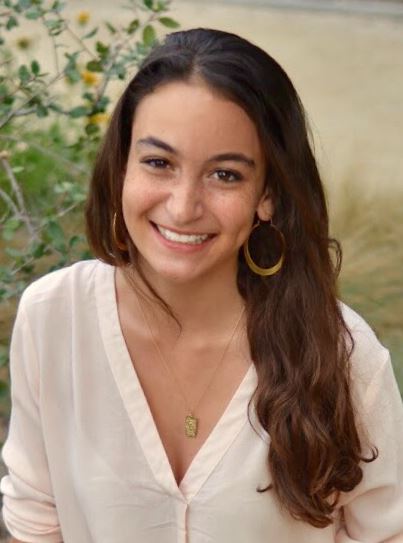
Pittsburgh. Poway. Jersey City. Monsey.
The list of cities afflicted by deadly antisemitic attacks is growing far too quickly. We can continue to cite facts and statistics (the near daily attacks on Jewish communities in New York, how 60% of all religious hate crimes in 2018 were classified as anti-Jewish, etc.), but the bottom line is simple: Antisemitism isn’t “on the rise” in the United States — it’s thriving and incredibly dangerous.
That’s why I was horrified to find Bears for Palestine’s display in Eshleman Hall, honoring figures who carried out the same types of attacks in Pittsburgh, Poway, Jersey City and Monsey. The ASUC Senate’s University and External Affairs Committee must stand with the Jewish community during these trying times and pass the resolution titled “Condemning Bears for Palestine for Their Display in Eshleman Hall Glorifying Violent Terrorists.”
Bears for Palestine has every right to honor Palestinian activists, and there are certainly many notable Palestinian figures to choose from; consider Bassem Eid, a prominent Palestinian peace activist who works diligently to call out human rights abuses in the Palestinian territories and bring both sides closer to a peaceful resolution. Unfortunately, instead of commemorating activists, BFP commemorated individuals whose reputations stem from their murder of Jewish people.
Rasmieh Odeh. Fatima Bernawi. Leila Khaled. What did these women do?
Rasmieh Odeh was sentenced to serve time in prison in connection to the 1969 Jerusalem bombings conducted by the U.S.-recognized terrorist organization Popular Front for the Liberation of Palestine; the bombing of a SuperSol Supermarkets killed two Israeli college students shopping for groceries and injured nine others. Days later, Odeh attempted to bomb the British Consulate in Jerusalem — fortunately, this time no one was injured in the blast.
Fatima Bernawi made headlines two years prior for her attempt to blow up a movie theater in Jerusalem. She planted a bomb in Zion Cinema in 1967 in hopes of taking out viewers in order to protest a film detailing the events of Israel’s Six-Day War. Thankfully, the bomb failed to go off, and Bernawi was arrested, saving countless lives.
Leila Khaled rose to fame after two terrorist attacks in 1969 and 1970. She is a senior activist of the PFLP and was involved in the hijacking of TWA flight 840 from Rome to Tel Aviv and El Al flight 219 from Amsterdam to New York City. No one was injured in the first attack, and the second was foiled by Israeli sky marshals.
“Unfortunately, instead of commemorating activists, [Bears for Palestine] commemorated individuals whose reputations stem from their murder of Jewish people.”
Therein lies the problem we see today and have seen throughout history: the justification and glorification of Jewish death and Jewish fear. When will we stand up as a society and condemn the killing of Jewish people for being Jewish? Whether these Jewish people are Israeli or American should make no difference.
It’s hard to feel completely safe as a Jewish person anymore. I find myself second-guessing attending the concerts of Israeli artists, and I never sit by the street window during Shabbat dinners at Chabad. Watching security pile up at the Jewish spaces I call home breaks my heart. Is it really so much to ask that we don’t idolize those that cause this fear and pain in a university building? How can Jewish students feel supported during these dark times when we walk through a campus every day that has posters of our murderers in its buildings?
As a Jewish student, I am tired. I am tired of having to fight for the acknowledgment of antisemitism on a campus that claims to stand up for the marginalized. I am tired of having my people’s suffering justified to me time and time again. I am tired of people’s excuses for why their own antisemitism is only “anti-Zionism,” as if the two are not practically identical.
But I also have hope. I have hope that if our community is relentless enough, maybe our voices will be heard. I have hope that people will begin to stand with the Jewish community and not simply push us to the margins. I have hope that this period in Jewish history may not be as tragic as the past.
Maybe this resolution will be the beginning of the affirmation of that hope.
Originally published in The Daily Californian.
Contributed by 2019-2020 University of California – Berkeley CAMERA Fellow Maya Reuven.

